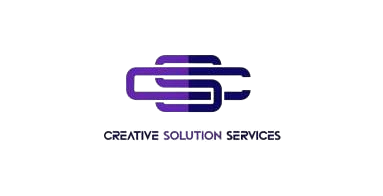
In today’s digital-first world, success isn’t just about having a product or service. It’s about how well you can showcase it online. From branding and outreach to customer experience and improving conversions, the
digital marketing space requires a strategic approach. To thrive in this environment, businesses must invest in the right mix of skills, creativity, and technology. Each click, search, and scroll offers a chance to connect with a customer. If you’re not where your audience is, you’re already behind.
1. The Role of Professional Support in Digital Marketing and the Digital World
In a competitive market, companies often struggle to manage everything internally. That’s why professional help from
digital agency services is in high demand. These services cover everything from website development and branding to SEO, paid search, and content creation. With a team of specialists working together, companies can streamline their digital processes, gain efficiency, and grow faster.
Digital agency services not only save time but also deliver better results through data-driven solutions, A/B testing, and deep industry knowledge. For example, a brand in e-commerce can hire a digital agency to optimize product pages, ad campaigns, and retargeting strategies that significantly increase sales. By outsourcing digital strategy, businesses can focus on their main operations while still making progress online.
2. Boundary-Pushing Marketing
The days of relying only on billboards and flyers to market a product are gone. Nowadays, success comes from
online digital marketing—a solid strategy that allows companies to reach targeted audiences anywhere, anytime. From Google Ads to social media advertising, online digital marketing provides tools to promote your business, track results, and adjust in real time.
Its strength lies in its flexibility and reach. Small businesses can stand alongside larger competitors through innovative targeting and smart budgeting. It’s scalable too—startups can begin with a modest ad budget and increase spending as they grow.
Email marketing, influencer partnerships, and content creation are all part of the broader online marketing toolkit. More importantly, online digital marketing offers analytics and metrics that clearly show what works, helping brands refine campaigns for maximum return.
3. The Best Combination of Looks and Strategy
While marketing drives traffic to your site, the user experience once they arrive is equally important. This is where
web design and digital marketing complement each other. A great campaign may draw someone in, but if the site is slow, unattractive, or hard to navigate, customers will leave without taking action.
Web design makes your website user-friendly, mobile-optimized, fast-loading, and visually appealing. It supports your marketing efforts by providing a smooth journey from discovery to conversion. Good web design includes clear calls-to-action (CTAs), easy-to-navigate menus, engaging visuals, and responsive design that adjusts to any device. Statistics show that 88% of visitors are less likely to return to a website after a poor user experience. This highlights the need for web design and marketing to work together for lasting digital success.
4. Why Integration Matters More Than Ever
When web design, online digital marketing, and digital agency services align, businesses can achieve their fullest potential. A strong website won’t convert without traffic, and an effective ad won’t succeed if the landing page isn’t functional. That’s why integration is crucial.
Companies need to treat their online presence as a cohesive whole. Each piece must connect to the next; they shouldn’t operate independently. Strategy, innovation, and performance must all merge into one efficient, optimized system. An integrated approach leads to better lead quality, higher conversions, and a more unified brand voice. It also allows for greater adaptability; designers and marketers can make immediate adjustments based on performance data and customer behavior.
5. Real Results from Real Strategies
Many companies have found success with this holistic method. Local businesses have doubled their sales by launching online campaigns targeting their communities. E-commerce companies have cut bounce rates and increased conversions by redesigning their websites with clear CTAs and faster checkout processes. Service organizations have built lasting connections using automated email systems and tailored content strategies to keep users engaged beyond the first click.
Even non-profits and schools are enhancing their digital presence—reaching more people, boosting engagement, and achieving their goals better. These real-world outcomes show that digital strategy is not just for sales; it’s for visibility, trust, and growth across any sector.
Conclusion
Success in the digital space isn’t about excelling in one area; it’s about blending all the right components. Digital agency services offer expert guidance to develop and maintain your strategy. Online digital marketing helps you reach, engage, and convert the right audience. Meanwhile, digital marketing and web design ensure that when visitors arrive at your site, they’re impressed, engaged, and ready to act.
When these elements work together, your brand can grow faster, engage more deeply, and compete more effectively. Whether you’re in manufacturing, healthcare, or finance, a full-spectrum digital strategy puts you in control. The digital landscape changes quickly. The question is—will your business keep pace?
 In today’s digital-first world, success isn’t just about having a product or service. It’s about how well you can showcase it online. From branding and outreach to customer experience and improving conversions, the digital marketing space requires a strategic approach. To thrive in this environment, businesses must invest in the right mix of skills, creativity, and technology. Each click, search, and scroll offers a chance to connect with a customer. If you’re not where your audience is, you’re already behind.
In today’s digital-first world, success isn’t just about having a product or service. It’s about how well you can showcase it online. From branding and outreach to customer experience and improving conversions, the digital marketing space requires a strategic approach. To thrive in this environment, businesses must invest in the right mix of skills, creativity, and technology. Each click, search, and scroll offers a chance to connect with a customer. If you’re not where your audience is, you’re already behind.
 In today’s digital-first world, success isn’t just about having a product or service. It’s about how well you can showcase it online. From branding and outreach to customer experience and improving conversions, the digital marketing space requires a strategic approach. To thrive in this environment, businesses must invest in the right mix of skills, creativity, and technology. Each click, search, and scroll offers a chance to connect with a customer. If you’re not where your audience is, you’re already behind.
In today’s digital-first world, success isn’t just about having a product or service. It’s about how well you can showcase it online. From branding and outreach to customer experience and improving conversions, the digital marketing space requires a strategic approach. To thrive in this environment, businesses must invest in the right mix of skills, creativity, and technology. Each click, search, and scroll offers a chance to connect with a customer. If you’re not where your audience is, you’re already behind.



